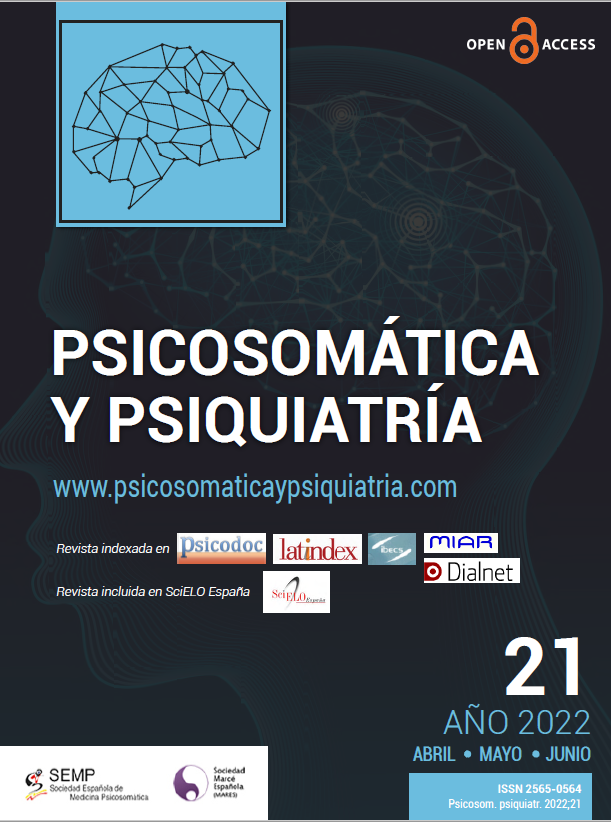Compulsive sexual behavior: Relationship with common risk factors and substance use in young adults
Article Sidebar

Main Article Content
ABSTRACT
Introduction: Compulsive sexual behaviors (CSB) are defined as difficulties in controlling inappropriate or excessive sexual urges or behaviors. That generates a subjective discomfort or impairment in the person's day-to-day, such as fantasies, recurrent arousal, urges, or non-paraphilic activity (Kraus et al., 2016). These can act as a regulatory mechanism, both for emotions and impulses. This study analyzes the relationship between said risk factors, substance use and CSB in a young-adult population (18 to 30 years).
Method: The sample consisted of 351 people (66.1% female, 33.9% male). Descriptive statistics of mean comparison (t de Student) and correlation of variables (Pearson’s correlation) were used for data analysis.
Results: The group of men and homosexuals/bisexuals people presented a higher level of CSB. Significant correlations were found between CSB, lack of emotional regulation, impulsivity and alcohol and cannabis consumption.
Conclusions: This study suggests a need for further research on CSB and their etiology
Article Details
Copyright
This work is published under a license Creative Commons Reconocimiento-CompartirIgual 4.0 Internacional (CC BY-SA 4.0)
The authors maintain all copyrights and the journal reserves the rights of the first publication of the article.
Alba García Iglesias, Máster en Adicciones, Universidad de Oviedo, Asturias, España
Máster en adicciones por la Universidad de Oviedo